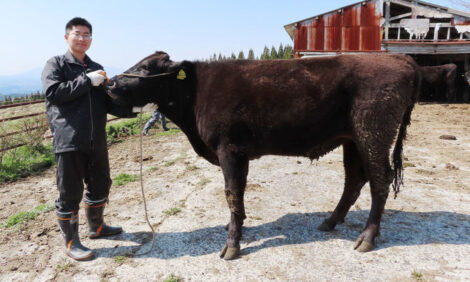



Hay! Be Careful Out There
Making hay can seem never-ending. These tips can help keep you safe“A cold wet May means a barn full of hay” the old saying goes, but my experience with haying is much like the reality of getting milk from cows. Some say cows give milk, but it seems to me you have to take it from them! Filling the barn with hay, no matter what the weather has been, is a lot of hard work. With long hours and hard work come much higher risks.
Fatigue, weariness, or exhaustion, increases stress levels and encourages us to take dangerous shortcuts. Often, a break in the weather for getting the hay down, dried, and baled is way too small – but it has to be done. The window for getting the best quality hay may be very narrow. You are tempted to push, push, push to beat the weather, the weevil or the wilt. Many serious injuries occur on farms at just such a time. Here are some recommendations that work to help keep you as safe as possible while still keeping you as productive as possible.
Prevention has long been recognized as the best approach – “a stitch in time saves nine”; “an ounce of prevention is worth a pound of cure.”
- Take breaks. Yes, a 10 to 15 minute break every two to two and a half-hours can go a long way in keeping you sharp and alert. Stretch your legs, rest your eyes, and think about something else. Check in with someone via radio or cell phone so they know you are OK.
- Drink plenty of liquids. Dehydration can give you a headache and interfere with alertness. Water and fruit juices are best; avoid caffeine and alcohol. (This will also remind you to stop for the breaks mentioned above.)
- Eat regular meals. Healthy food is important for you to feel good and function physically well. Stopping your machine and taking a short break from it will refresh your mind as well.
- Wear hearing protection. The constant sound of machinery is very tiring. Also, the typical sound level of a tractor and PTO operated machine can permanently damage your hearing in one to four hours.
- Get enough sleep. Lack of sleep slows reflexes and dulls the thought process.
The few minutes a day it might take to put these recommendations into action will seem so small if your weary lack of attention causes a machine breakdown, or worse yet a serious injury. Make the choice to invest your time wisely - in prevention.
Working with the machine itself presents another category of risks.
- Guards and shields are part of injury and fatality prevention; they keep you away from moving and sharp parts. Keep them in place and working properly. Repair or replace them when they break – it’s much cheaper than a trip to the emergency room. Ask the hundreds of farmers who found out the hard way.
- Turn off the PTO before you get out of the operator’s seat. Sure, it might take longer to unplug the machine, but what is more important – that 15 minutes or your arm?
- Read the operator’s manual (again). Haying equipment is used only during the summer, giving you nearly a year to forget the safety warnings and most efficient operating procedures.
- Slow Moving Vehicle (SMV) emblems are mandatory on all equipment designed to go 25 mph or less that is travelling on the road. If yours are faded (over 2 or 3 years old) they are no good and need to be replaced. (It is illegal – and confusing - to put them on stationary posts like driveway markers). Be part of the solution, not part of the problem.
Haying and harvesting season is hectic enough without having to deal with a tragedy. In most cases, this is your choice. Prevention costs much less time and money than dealing with the injuries and fatalities that make agriculture the nation’s most dangerous industry.


